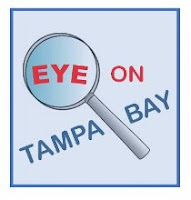 Ron DeSantis: Boost Classroom Spending For Students and Teachers, Expand Choice, Vocational and Technical Education, and Hold the Line on College Tuition
Ron DeSantis: Boost Classroom Spending For Students and Teachers, Expand Choice, Vocational and Technical Education, and Hold the Line on College Tuition
To build a world-class education system & prepare all Florida students for the future, Ron DeSantis will:
- Boost Classroom Spending for Students and Teachers with the 80% Classroom Spending Plan
- Emphasize Career & Technical Education
- Encourage Innovation & Expand Choice in Education
- Recruit, Reward and Retain Good Teachers
- Review and Improve Florida’s Curriculum Standards
- Build an Affordable, World-Class Higher Education System
Emphasize Career & Technical Education
Ron DeSantis will work to expand vocational
and technical education to teach real-world skills to students and help them
prepare for the jobs of the 21stcentury.
- Emphasize Career and Technical
Education Courses and Apprenticeship Programs. To improve Florida’s “skills gap”, Ron
DeSantis will work with leaders from K-12 schools, postsecondary
education, and the business community to better support career and
technical education and apprenticeships, and to make sure Florida’s
education is meeting the needs of our students and economy. He will make
sure that Florida is offering high quality CTE offerings that provide
pathways to higher skill and higher wage jobs for Florida’s students. Ron
DeSantis will work with the Legislature to incentivize and recognize
schools leading their communities in career and technical education
programs.
- Allow Mastery-Based Curricula in
Career and Technical Education Classes. To help students get a job as soon as they
are ready, Ron DeSantis will support mastery-based curricula in career and
technical education, which will allow students to complete these programs
as soon as they demonstrate the proper competency.
- Expand Apprentice and
Pre-Apprenticeship Programs. To expand job opportunities for Floridians,
Ron DeSantis will work with the Florida Legislature to find ways to
support and expand apprenticeships for jobs in high-demand fields.
Recruit, Reward and Retain Good Teachers
Ron DeSantis will support policies that
reward high-performing teachers and reduce teacher shortages while ensuring
Florida students learn from the best.
- Reward High-Performing Teachers. To reward and retain the best teachers,
Ron DeSantis will work with the Legislature to simplify and optimize the
teacher merit pay evaluation system so it is based reasonably on classroom
performance. He will also look to generate financial savings by reducing
unnecessary education bureaucracy and will direct the Legislature to use
excess funds to provide more funding for merit pay bonuses for outstanding
teachers.
- Address Teacher Shortages. To help recruit the best teachers, Ron
DeSantis will work with the Legislature to expand programs that incentivize
top educators to teach in Florida and to develop programs that incentivize
and reward teachers in more demanding or specialized positions, such as
teaching Florida’s special needs students.
Build an Affordable, World-Class Higher
Education System
Ron DeSantis will support and expand higher
education programs that ensure Florida’s state colleges and universities offer
students a world-class education at an affordable rate.
- Enhance Performance Funding. To encourage the continued performance of
Florida’s universities and support the ongoing climb of Florida public
universities in major rankings, Ron DeSantis will work with the
Legislature to increase performance funding and enhance other programs
that have proven effective at improving 4-year graduation rates,
increasing student retention rates, lowering student costs, and reducing
student debt.
- Protect Taxpayers’ Investment in
Florida’s Higher Education System. To ensure government does not waste taxpayer
dollars in Florida’s higher education, Ron DeSantis will hold state
colleges and universities accountable for wasteful and inappropriate
spending.
- Hold the Line on Tuition and
Student Expenses. To minimize students’ costs and reduce student debt, Ron DeSantis
will work with the Legislature to keep tuition as low as possible by
looking for administrative spending reduction opportunities while also
supporting Bright Futures Scholarships and other programs that reduce the
financial burden on Florida’s students. He will also look for ways to curb
additional costs for students, such as textbooks and other fees.
- Support our College System. To support the success of the Florida College
System and the important role it plays in our education system, Ron
DeSantis will work closely with the Legislature and college system leaders
to ensure that it remains one of the most dynamic and effective systems in
the country. Ron DeSantis will also work with the Legislature to increase
performance funding for our State College System. Hundreds of thousands of
students throughout the state expand their opportunities and brighten
their futures by enrolling at our state colleges. We must continuously
look for ways to make them more efficient and effective.
To Read More: Check
out the Ron DeSantis Campaign Website
E-mail Doc at mail to:
dr.gwebb@yahoo.com or send
me a Facebook (E.
Eugene Webb) Friend request. Like or share on Facebook and
follow me on TWITTER @DOC ON THE BAY.
See Doc's Photo Gallery at Bay Post Photos.
See Doc's Photo Gallery at Bay Post Photos.
Disclosures:
Contributor
to: Rick Scott for US Senate , Ron DeSantis for Florida
Governor
Please
comment below










